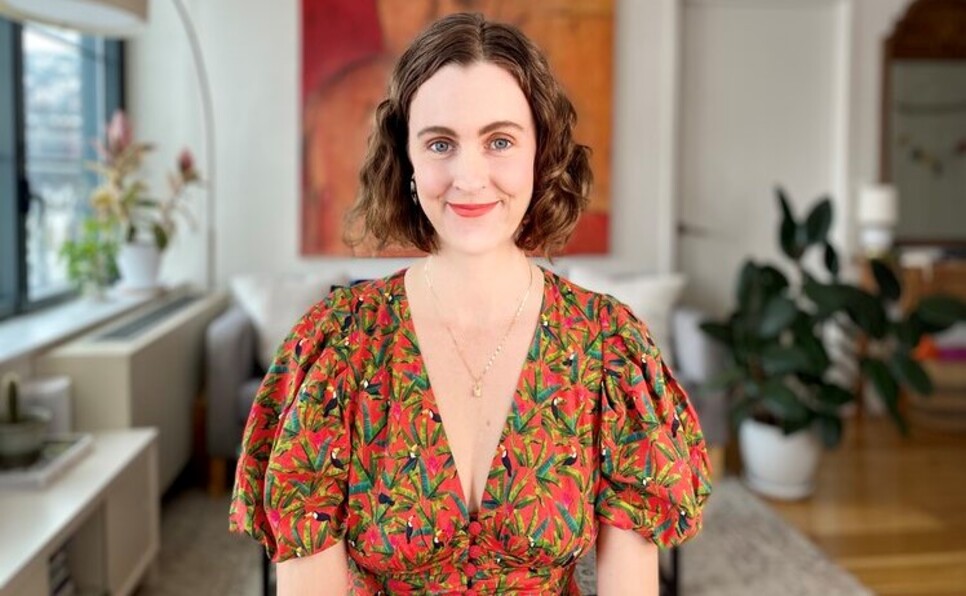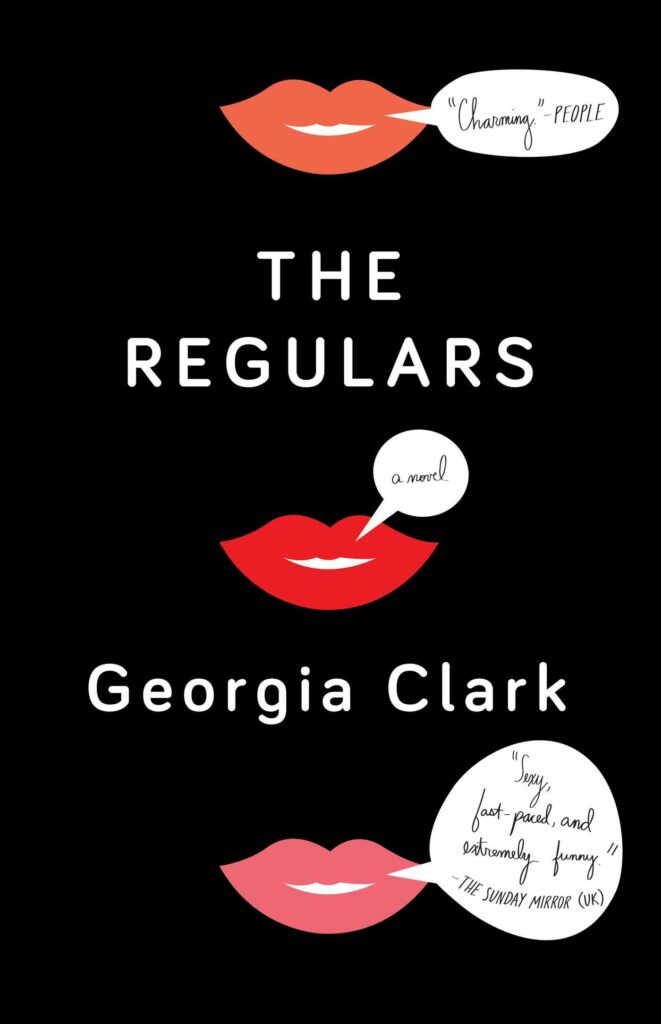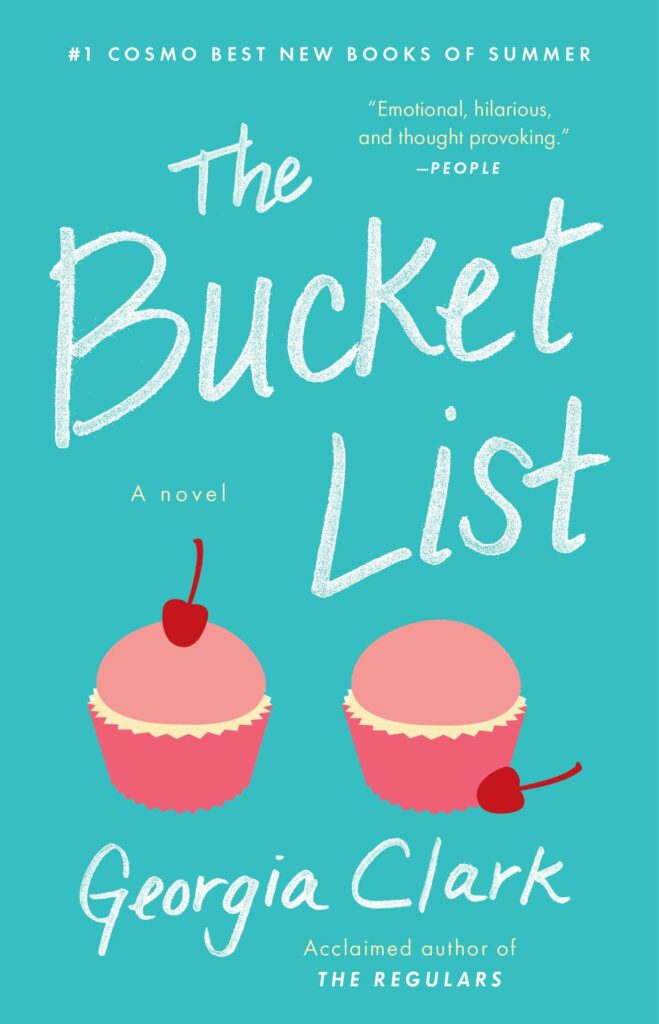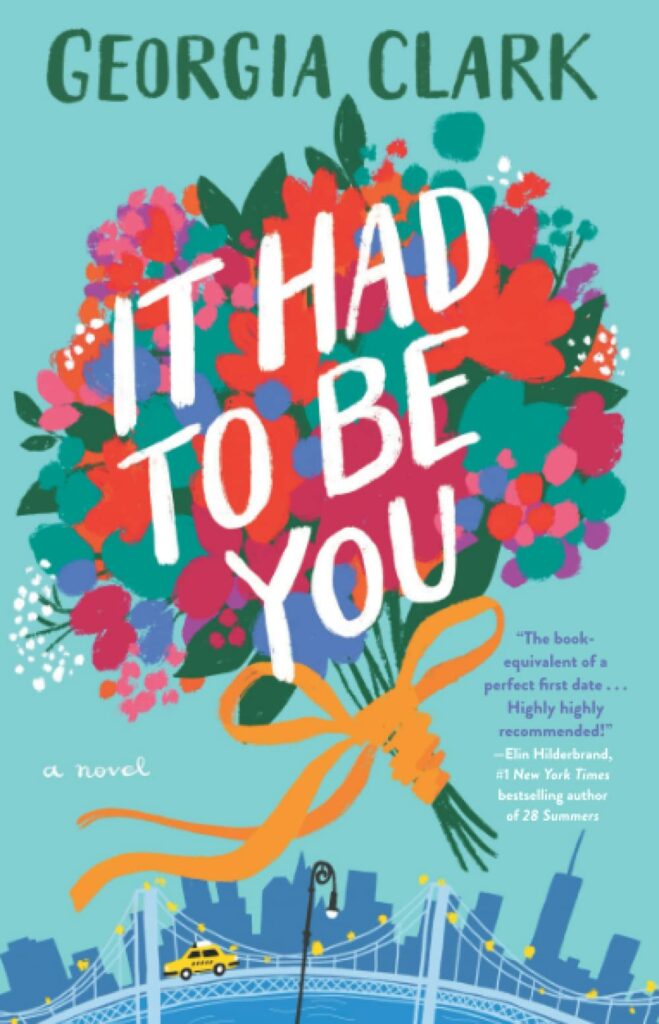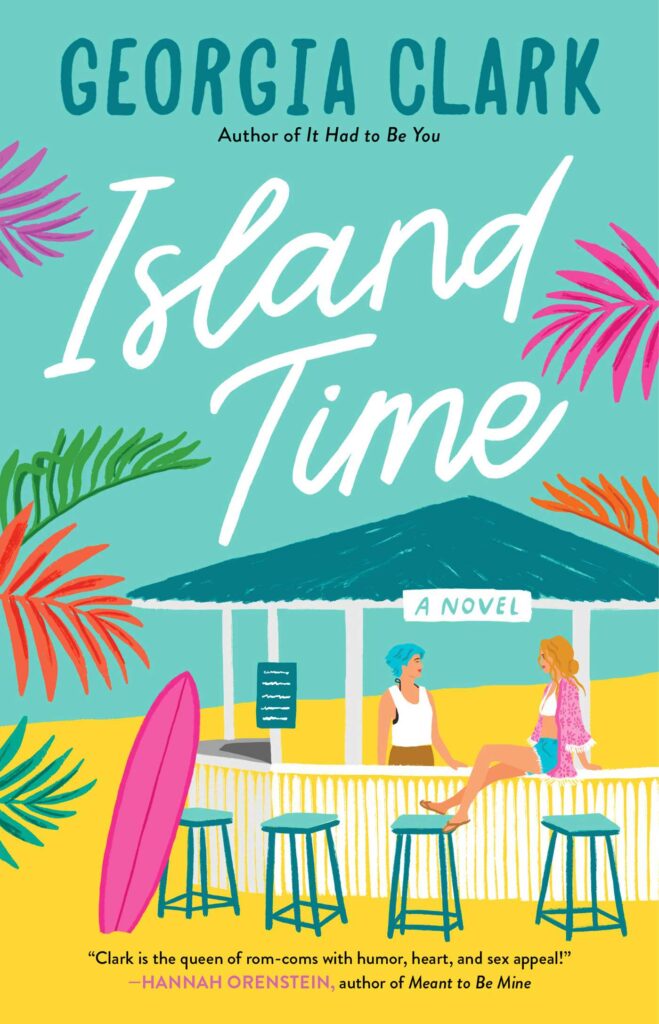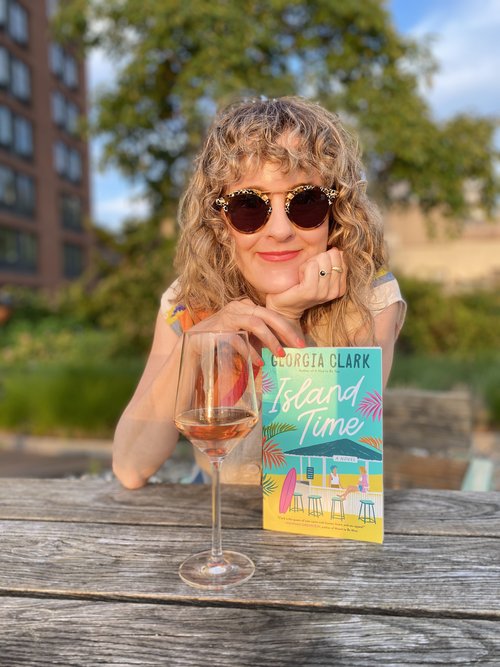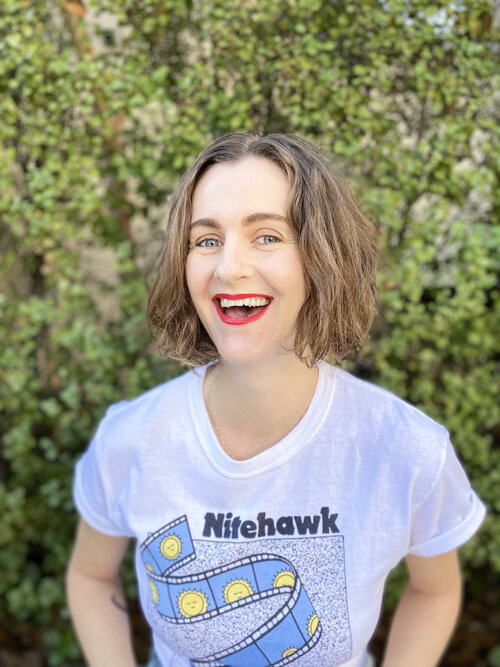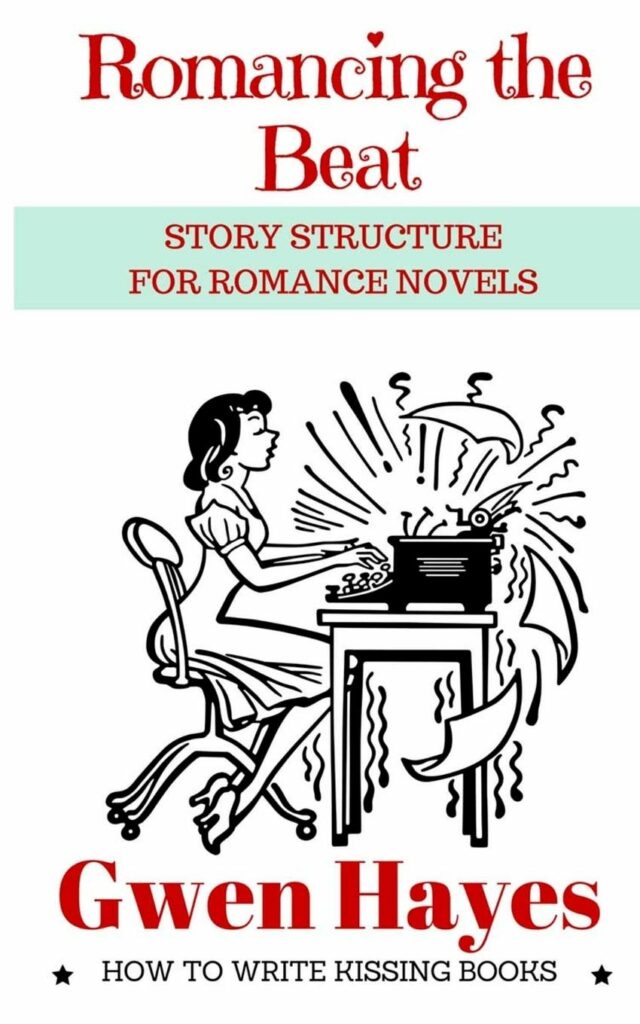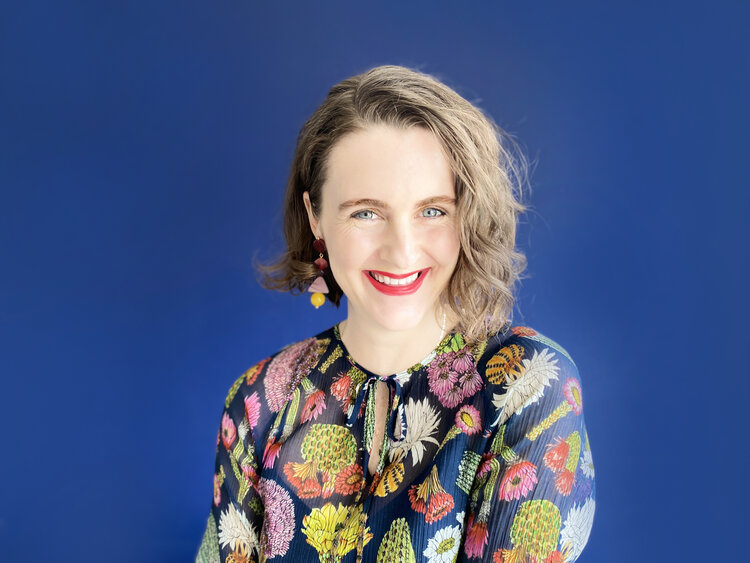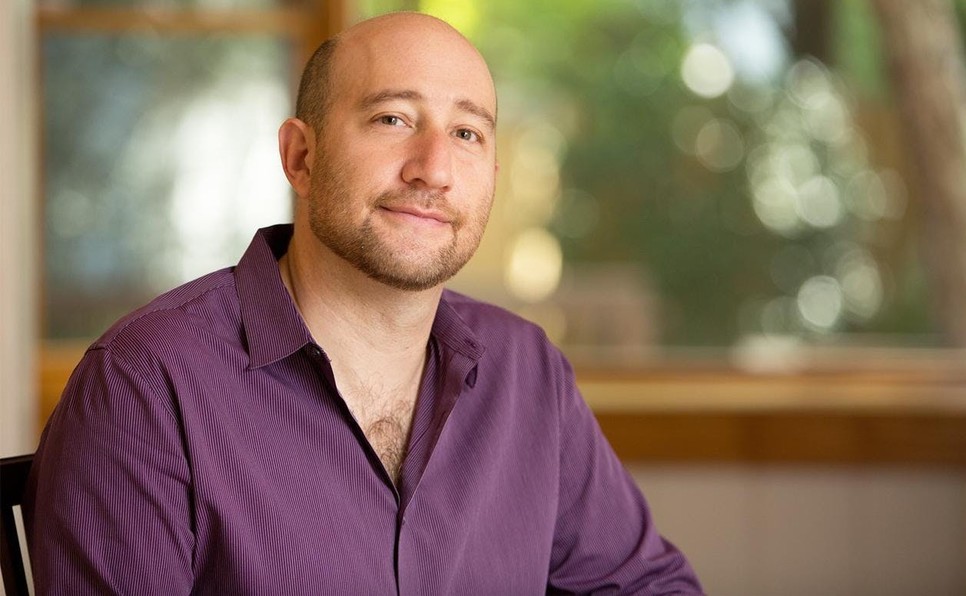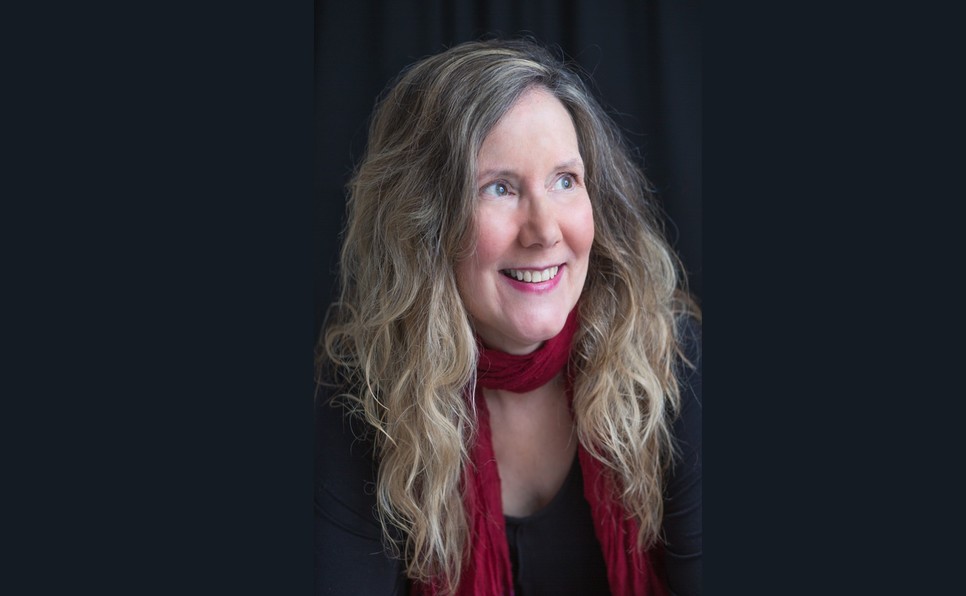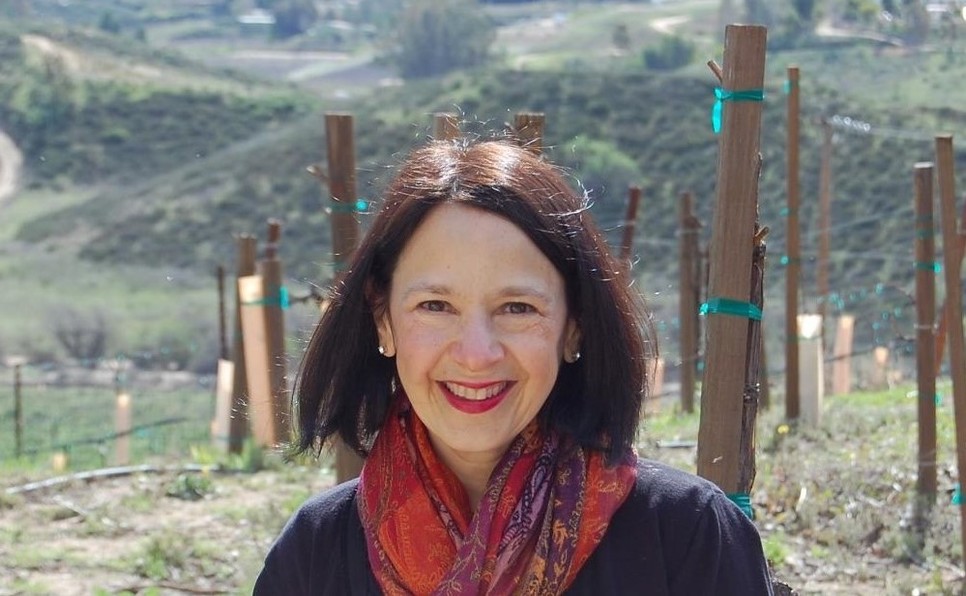When I first saw author Georgia Clark host the wildly popular New York storytelling night, Generation Women, I thought, wow, this person is funny. And vibrant. The entire packed room was captivated by her ebullient presence, her competent hosting, and her clear passion for creating a warm and interesting space, a “matriarchal campfire” where women and non-binary performers of all ages can come to connect and share their stories. As such, securing a spot at Generation Women is competitive, although rightfully rewarded, with the premise that one regular New Yorker across six generations speaks to the same theme. Cue a night of hard laughs, soft tears, and a healthy dose of celebratory feminism. With a bevvy of romantic comedies under her belt, Georgia is the author of “sexy, feel-good stories” that she hopes will make you swoon. And believe me, they do. A fellow expat living in America, and fellow lover of the business of writing, it’s my pleasure to publish my conversation with Georgia here on Aspiring Author.
How did you get into writing?
As many writers do, I got into writing from a really young age by writing stories in the classroom. But unlike other students who would turn in a single page, I would turn in five pages of work. I still remember the distinct joy that I would get from those A+++s on that piece of paper. I feel like it’s taken me many years to undo needing others’ approval of my work, which, ironically enough, is quite detrimental to enjoying the life of a creative. But, in the very beginning, I was motivated by the enthusiastic reception of my work from my Grade Three teachers! Generally, I was always interested in the arts. I wanted to be an actor when I was in high school, and that changed to wanting to be a director. I made some short films and went to school for screenwriting and filmmaking in my 20s. I was trying to get into screenwriting in a roundabout way, while also having lots of adventures and doing different, interesting things in my 20s.
Describe your publishing journey
My publishing journey started in Australia and continued in the U.S. When I moved to New York in 2009, I initially planned to come for three months and write a feature film script. I ended up staying here for 14 years, never leaving, and never writing that screenplay! But I did write novels. I had a young adult novel published in Australia when I was in my late twenties. It was a very simple story, a young adult novel, that I thought was a one off. I wasn’t interested in writing another, until I came to New York and realized how competitive everything was, and that maybe I would have more luck selling a book as opposed to a screenplay because I’d already published a book.
Why did you choose to write novels over screenplays?
I realized that novels would scratch my itch for storytelling, and that the desire to tell stories didn’t have to be met by making a film of those ideas, since novels can create a movie in your head. The creation of that story was really what interested and pleased me. I also discovered a lot of other benefits to writing novels: you can do it in your sweatpants, and you can do it anywhere. You don’t need anyone else’s permission to start writing, you don’t need a team, or financing, or a lead actor. You play all the parts—you’re the director, the screenwriter, the costume designer, the set designer, the editor—you get to do it all, which is kind of fun.
What happened next? How did you end up getting published with a Big Five?
I wrote a young adult novel that didn’t sell. And then I wrote a young adult novel that did sell for a very small amount of money. It was a big, unwieldy sci-fi action adventure set in the far future about robots, a world without water, and climate change. I was really proud of that book, even though about three people read it! I had a bit of a come-to-Jesus moment and thought: I can’t keep doing this; this isn’t a sustainable way to make a living. I set about writing the next book with more of a plan to sell it for a good advance that I could actually live on for a while. And I wanted it to be published by one of the Big Five publishers, and have a proper marketing team, a publicist who could help get the word out, and an editor who would work closely with me. To achieve that, I did something I hadn’t done before: I invested in a freelance editor, Sarah Cypher, to work with me on the draft. Even though I don’t think that you need to work with a freelance editor, it can really work if you’re looking to improve at a line level and a craft level. I don’t think I would have sold The Regulars to Simon and Schuster if I hadn’t have been working with Sarah.
That’s an inspirational author-editor success story! And you went on to write many more…
Yes, I went on to work with Sarah on four or five more books after that. The Regulars was my first big book with a big publisher. After that, I wrote The Bucket List. And then It Had to Be You, which was my first romantic comedy, followed by Island Time. I’m currently working on finishing up my first queer Christmas romcom. All of my romantic comedies (the lane I’m in now) are ensemble books. They’re a lot of fun, and they bring me a lot of joy.
Describe your relationship with your literary agent
I found my literary agent, Allison Hunter, after my first agent left the business. I met her a few years before when she was starting her own agency, Trellis Literary, with two other female co-founders. She’s a senior agent and an incredibly important part of my publishing family and my publishing journey. It was Allison’s suggestion to turn It Had to Be You into a rom-com. Honestly, I didn’t really know much about rom-coms. I hadn’t really read that many, and I thought of them as many people think of them, as sort of silly, not something with substance, and just not something that I’d be able to write. I was wrong on all counts! It Had to Be You turned out to be my most commercially successful book. It also has put me into this new category, and this new world that I’m really enjoying being in, so I’m very grateful for that. Allison and I have a close relationship; I really trust her, and she is very forthright, which I appreciate. Sometimes I need the hand holding, but most of the time I don’t. I’m a hustler, and so is she. She respects me and appreciates me and the effort that I put in, and she loves that I’m trying. I’m very, very happy with my literary agent.
Describe your relationship with your editor and publisher
My editor and publisher are new relationships. I left Simon and Schuster after publishing four books together and signed a two-book deal with The Dial Press, an imprint under Penguin Random House. I have two new editors, Emma and Katy. They’re both young editors and I’m really excited to be working with them. I feel really lucky to have two editors who want to work with me; it’s kind of unusual to have two, but the more brains on my work, the better! We’ve just done one round of their great notes on my manuscript, which I’m in the process of finishing addressing. I’m really excited to continue the editorial process with my new book, which has a working title that I won’t share, because it’ll probably change. We’re just calling it “the queer Christmas romcom.”
Your latest novel, Island Time, is a “sumptuous summer read” and total, joy-filled escapism. How important is it to you to write about places we can escape to? Does setting matter?
The setting for Island Time is such a key part of the story. I wrote it during the pandemic, because I couldn’t go back to Australia and I missed my family. The setting came first, and it really just answered the question of: Where do I want to go and spend the next two years in my head? And the answer was this island, because it’s so much easier to work with invented locations, so you’re not tied to the accuracy of real life. It was super fun to invent an island because you really get to play God and figure out where rainforests, beaches, and mangroves go! The setting is hugely important because it couldn’t have taken place anywhere but that island. It’s about two families who get stranded there for six weeks after a big weather event. I did a lot of research into whether the island was geographically correct. There’s no plant or bird species out of place. As with all my work, it was fairly intensely researched and really, really fun to write.
Your storytelling night, Generation Women, is phenomenally popular. To what do you attribute its success? How important is it to give voices to women of all ages?
I think the success of Generation Women is in the concept, which is bringing together multiple generations of women and non-binary folks to tell their story. It’s the simple act of getting together people in their 20s 30s 40s 50s 60s and 70s and hearing their response to the same theme. Seeing the cycle of life unfold as the night goes on is incredibly healing, entertaining, and fun. I consistently get feedback on how good it feels to be in a multigenerational environment. We don’t often spend time with people of different generations outside our family members; if we know someone intimately who is a generation or two older than us, it’s usually an aunt or grandmother. This show really widened my friendship circles with older and younger women, which has been great. Generally, I feel like your friends are in the same age group, give or take maybe a decade. But this can get a little myopic, with a bit of a compare and despair thing going on like, oh, they’ve bought a house, I haven’t bought a house, they have their dream job, I don’t have that yet. Whereas if you spend time with people who are much older or much younger than you, your perspective widens, and I find that very soothing. It kind of relaxes me about all my troubles, and I just learn so much from other people’s stories. The night also has a hopeful feel to it, which is baked into the premise and storytelling. I invite stories of hope, of getting over obstacles, and stories that highlight the importance of grit, resilience, and perseverance. We also don’t have a lot of celebrities doing the show; it is, for the most part, stories from people who have the same resources and concerns as the rest of us. I feel like that’s a part of the success of the night as well: it’s about hearing the stories of female and non-binary New Yorkers of all kinds. It’s a feel-good night, based on real stories.
You run writer’s retreats, storytelling masterclasses, romance writing workshops, and marketing courses. Why should aspiring authors attend these?
Look, attend these if they speak to you! I just think that it’s really hard to write in isolation. Technically, yes, you write on your own, but it’s hard to sustain that without a writing community. It’s too easy to give in to fear and self-doubt, and maintaining self-belief is very difficult to do on your own. It’s really made so much easier by finding a community, leaning on that community, educating yourself, and skilling up. I would not be the writer I am today if I hadn’t taken multiple courses, read multiple books, worked with editors, and listened. It’s simply not possible to get better at your craft without meeting some teachers along the way. Everything that I’ve created, I’ve created because they’re things that I would do, and that have helped me. I’ve been to many writing retreats, and they’ve been incredible places to get deep work done and to make lasting friendships. I’ve attended workshops, I’ve taken multiple courses, and all of those experiences have informed the way that I put together my offerings, based on what I like. For example, everything I do starts and ends right on time, because I don’t like events that run late. That’s just the kind of Type A person I am! I always like to be very upfront about what you’re going to get, and I deliver flawlessly on everything. I’m constantly learning and tweaking offerings to make sure they’re appealing to writers. I wouldn’t run them and people wouldn’t sign up for and buy them if they weren’t offering something that was really helpful. It’s very fun to be able to do something for someone else, to offer an experience that makes their life better.
What should writers look for in a writing community?
Writing communities are a great way to stay accountable to yourself and your goals, to be inspired by other people who are working towards the same thing, to get advice, to share resources, and to just get out of your head. I think the biggest thing that stands in the way of most of us writing and enjoying it is ourselves, and the pressure we put on ourselves to be churning out perfect first drafts, or bestselling books, the first time we put pen to paper. It’s just not realistic. It’s practice, you’re learning to get better at something. That takes time. And it only happens in the doing of it. You can read all the craft books in the world, but it’s only from turning out multiple drafts again and again that you actually get good at what you’re trying to do. There are no shortcuts. Find beta readers on your drafts from people who are familiar with your genre and what you’re trying to achieve. I know a lot of writers who have turned out a first draft of a romance and their beta readers are working on sci fi or literary fiction. Those opinions are just not going to help you because those writers have no idea what romance readers are looking for. If you create a writing community of people working in your genre, then you’re able to get feedback that will help you move your draft forward towards the readers that are actually going to read your book.
Talk to me about how important it is to encourage and celebrate, rather than compete with, fellow writers. Have you ever experienced professional jealousy?
As far as my troubles and struggles go, professional jealousy was a huge one for me. It took me a long time to kind of work out the techniques and strategies for relaxing those feelings. You just really have to understand that everyone’s on their own path. Everyone’s dealing with their own things, everyone has their strengths, their weaknesses, their moments to shine, and I just try and stay focused on what I’m doing, and to have a balanced life. It’s not all about the books or the writing for me; happiness comes from being a good wife, a good mother, a good family member, a good citizen, and a good friend. If I feel like I’m doing pretty well in all of those things, as well as meeting my writing goals and my writing life, then that gives me more of a sense of internal satisfaction and, where possible, takes away the idea of success being rooted in the reaction of others, because you can’t control that, and you never will, and it might not ever be enough. It’s just a trap that I don’t want to fall into anymore.
Who are your literary inspirations and mentors?
My three favorite romance writers at the moment are Emily Henry, Casey McQuiston, and Tia Williams. I think that all of their books are absolutely fantastic. They have elevated the art form, they are funny as hell, and they are emotional as hell. They are just incredible writers. I love them! There are too many literary inspirations and mentors to mention. I really admire Stephanie Danler, Steven Rowley, and Zadie Smith. My friend Amy Propel just wrote a great book. Some great names from my bookcase are Emma Straub, Lisa Taddeo, Gillian Flynn, Lauren Groff, Grant Ginder, Andrew Sean Greer, David Mitchell, Raven Leilani. So many! Certainly, my agent, Allison Hunter, has been really helpful. Her job title isn’t mentor, but I guess that agents do mentor you a little bit.
You are extremely prolific, with multiple rom-com novels, plays, and essays under your belt. How do you balance the business end of writing with the craft?
Every writer has to balance the business end of things with the craft. And I think for me, I always try and prioritize the writing, even though sometimes that doesn’t go as planned and I spend more time marketing or on something else. But my ultimate goal is to always try and prioritize the writing, and then have everything else fit in under that. I’m a full-time creative. I don’t have a day job, so I have to make money somehow! And I’d prefer to make money working in the arts. Some people like to have a day job, or make money from something totally separate, which honestly does make a lot of sense so you can really separate the two things. But I like making money in the arts through teaching, hosting live shows (In addition to Generation Women, I also do a show called Erotic Fan Fiction). It’s just finding that balance that does ultimately free up time, but the whole point is to free up the time and resources to allow the writing to happen. Elizabeth Gilbert, who is a mentor to us all, said that your art shouldn’t make money for you, but you need to make money to facilitate creating your art, which is a really helpful reframe. So you’re not putting pressure on the art to do things for you, to sell certain amounts of copies, or to make certain amounts of money. No, your job is to is to make enough money so that you have the time and the mental headspace and the freedom to create, because it is such an ethereal, otherworldly practice that doesn’t do so well when tasked with making the rent check every week.
Your characters are quirky, strong, sexy women whose paths to happiness are bumpy but always, ultimately, heartwarming. Do characters in romance novels always require their happy endings?
Readers are expecting a love story that turns out well: either happily ever after, or happy for now. If you’re writing romantic drama, there’s a little more room for nuance, and the lovers might not end up together. But certainly in a rom-com, the reader expectation is that the characters will get their happy ending. It might not be the ending the characters initially thought they were working towards at the beginning of the book. It could be an ironic ending, but it is always a happy ending.
What is your daily writing routine?
I don’t have a daily writing routine now that I’m a mom and juggling a few different projects every day. I do work from a space called The Writers Room in New York City. It’s a silent space—no talking, no phones, no music—which is helpful. I prefer white noise or silence, and I always turn off the internet. If I have the time, I’ll work in in two-hour blocks before having a little break and then diving back in again with a cup of coffee or tea. I really try to focus on writing, as opposed to checking text messages or anything else. But a fixed routine is sadly out the window these days.
With so many LGBTQ+ books getting banned across the United States, do you consider writing queer romance a form of resistance?
I do. Queer stories are a way of claiming cultural territory. If I’m being honest, it’s not my first agenda when I write queer romance; I write romance because I love love stories, and my love stories happen to be queer because I am queer. But having that representation is so important for so many readers, including myself. Queer romance is a relatively new genre in publishing, and its rise and success is truly exciting and necessary. Yet for all the changes and progress that’s being made, we’re still seeing so much homophobia. I hope that kids who are living in parts of the U.S. where there aren’t thriving queer communities can find their communities in books and online, and that these avenues provide hope and possibility.
What books on writing do you recommend?
I like Romancing the Beat: Story Structure for Romance Novels by Gwen Hayes. It breaks down the rom-com structure fairly succinctly, and it’s a short, ten-minute read. It’s a great place to start, even though it’s a little outdated because of how sophisticated the romance genre has become. I read Story by Robert McKee and went to his seminar when I was in my 20s, and that really broke open how stories work for me. It’s specifically for screenwriting, but there’s a lot that can also be applied to plot-driven novel writing. Honestly, I think the best ways to learn about romance writing, or writing in your genre, is to read in that genre. I learned a lot about how to write sex scenes from Tessa Bailey, how to write a great first kiss scene from Casey McQuiston, and how to write banter by reading Emily Henry. I think that fiction books can be great textbooks.
What advice do you wish you’d listened to or ignored over the course of your career?
When I was a younger writer, I was told that readers wouldn’t respond to a queer love story. I wish I’d ignored that.
What does success look like to you?
I focus on the creation of the work being the success of it. Before very recently, I would see the success of a work in sales and reviews, how other people reacted to the work, and in what numbers. And now, I think differently about it. I see the success of the work in so far as: Did I enjoy writing this book? What were my personal feelings about it? Did I feel like I executed what I set out to do? As I come to the final revision of the book I’m working on now, I absolutely feel like I really enjoyed writing it, I really enjoyed these characters, and I enjoyed this world. And when I hand it in, and when it goes into production, that’ll be the end of the project for me. Most people see the end of the project as the book launch, and that’s a part of it. Marketing and publicizing the book is a hugely important part of the process, it’s just that in a spiritual sense, and the way in which I’m assessing whether something is successful, it’s in the creation of the work itself. That’s been a really helpful mind shift for me, because then even if the book sells 10 copies, it doesn’t matter, and I don’t have that terribly destructive idea of it being a failure because it didn’t please other people as much as it pleased me. If the reaction isn’t what I want, it can really color what was a beautiful experience.
How important is it to you to pay it forward to aspiring authors?
Really important! I always try and be as supportive as I can of aspiring authors in any way that I can.
What keeps you sane?
My wife has a very positive outlook on life. Living my own real life love story is the great blessing of my life. I feel very lucky to be partnered with someone who is so supportive, fun, kind, smart, and wonderful. Therapy. Coffee. Wine. Getting outside with friends. Spending time with multigenerational communities and friends. Muting people on Instagram! But the thing that really keeps me sane is writing fiction. There’s an irony there, because the thing that challenges my sanity the most is publishing and my ambition. But actually, the thing that makes me happiest, quiets my brain, and gives me something productive to chew on is…writing.
What advice would you give to aspiring authors looking to get published?
Know that it’s a marathon, not a sprint. Most writers have one or more unsold manuscripts in their bottom drawer. I have two complete manuscripts that collectively took me two and a half years to write that will never be published. That’s a hell of a lot of time to spend on a project that went nowhere, but it did teach me how to move my career forward in different ways. I remember the first time it happened thinking: I will never get past this; I will never get past not selling this book. And I did, and I did it again! You need to be tough. You need to have perseverance, and to apply a balanced approach. Be disciplined with your time, and try to write at a regular time. Don’t procrastinate. All writers are both the talent and the manager: you’re the talent getting the work done, but you’re also the manager. You’re the one setting out when and how you’re going to write, and under what conditions it’s going to happen. A good manager is someone who gets the talent in the chair at a time they’re likely to write, which might not be at the end of a really long, stressful day or a week. Fight the bad manager screaming at the talent that they’re no good and that they’ll never be published. Be a tough-but-fair manager who will not let the talent off the hook until a certain amount of time has passed, or words have appeared on the page. Finally, write the book that you would buy yourself, that you would instantly pick up and put in your book cart. Don’t pander to what you perceive industry trends to be, because they will have changed by the time your book comes out. Write something that you would really, really enjoy spending the next three years of your life working on. And don’t worry about social media, or your query letter, or your platform, or anything other than writing a f*cking great book that’s special and different, because that’s the most important thing. It’s so easy to get distracted by competitions or hacks or what your favorite writer is doing. Just find a way to shut out the noise. Get your butt in the chair. Turn off the internet. And write.
About Author Georgia Clark
Author Georgia Clark is a novelist and performer. She’s the author of Island Time, It Had to Be You, The Regulars, The Bucket List, and others. She’s the host and founder of the popular storytelling night, Generation Women and co-founder of the Substack Heartbeat. A native Australian, she lives in Brooklyn with her hot wife and sweet baby.
Recommended reading
Here at Aspiring Author, we love recommending bestsellers and fawning over hot new releases. On this real time recommended reading list, you will find a list of top rated books on the publishing industry, craft, and other books to help you elevate your writing career.

